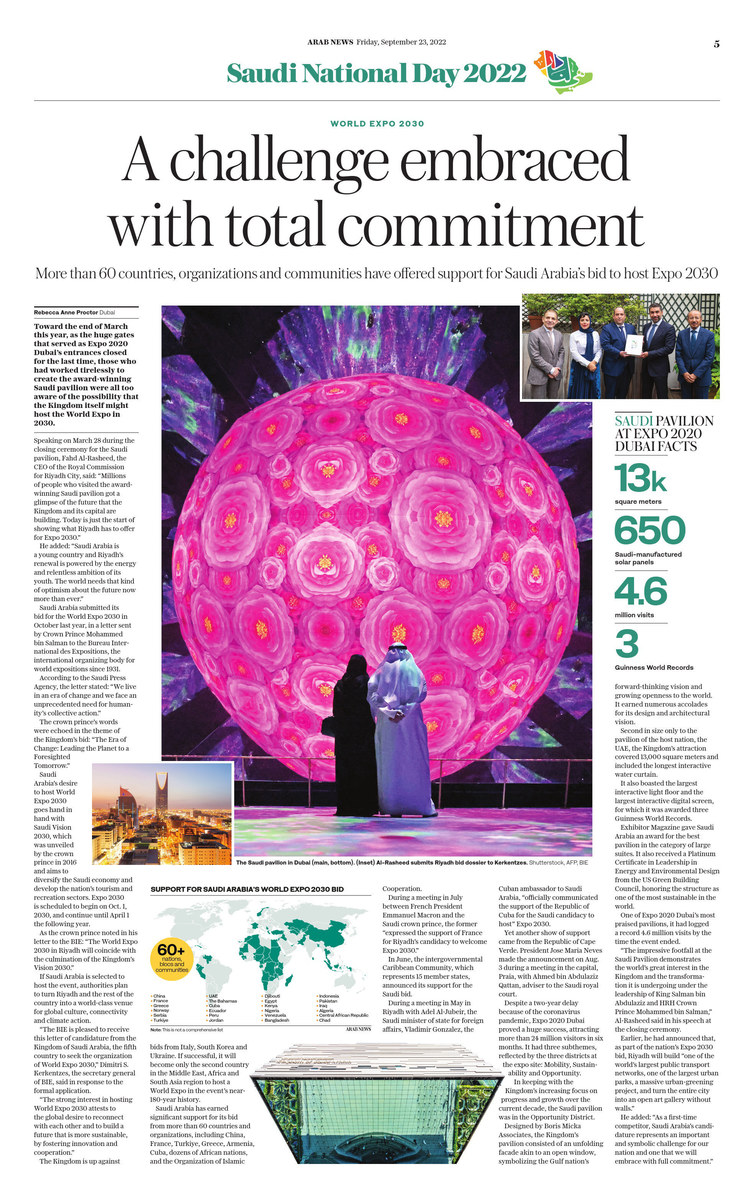DUBAI: Toward the end of March this year, as the massive gates that served as Expo 2020 Dubai’s entrances closed for the last time, those who had worked tirelessly to create the award-winning Saudi pavilion were all too aware of the possibility that the World Expo might be hosted by the Kingdom itself in 2030.
Speaking on March 28 during the closing ceremony for the Saudi pavilion, Fahd Al-Rasheed, the CEO of the Royal Commission for Riyadh City, struck a chord when he said: “Millions of people who visited the award-winning Saudi pavilion got a glimpse of the future that the Kingdom and its capital are building. Today is just the start of showing what Riyadh has to offer for Expo 2030.”
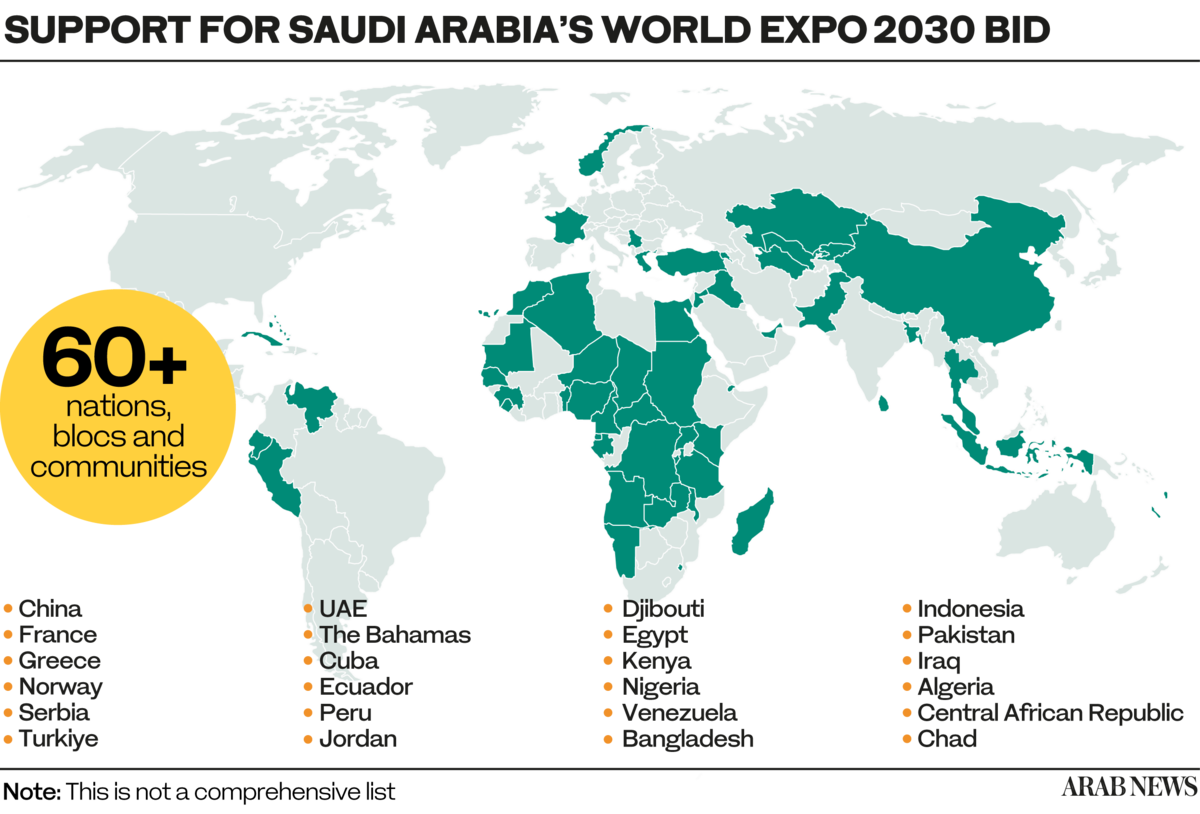
As the spectacular ceremony, featuring Saudi dancers who performed traditional and contemporary routines, brought the curtain down on the pavilion’s remarkable six-month run, Al-Rasheed said: “Saudi Arabia is a young country and Riyadh’s renewal is powered by the energy and relentless ambition of its youth. The world needs that kind of optimism about the future now more than ever.”
Saudi Arabia submitted its bid for the World Expo 2030 in October last year, in a letter sent by Crown Prince Mohammed bin Salman to the Bureau International des Expositions (BIE), the international organizing body for the global event since 1931.
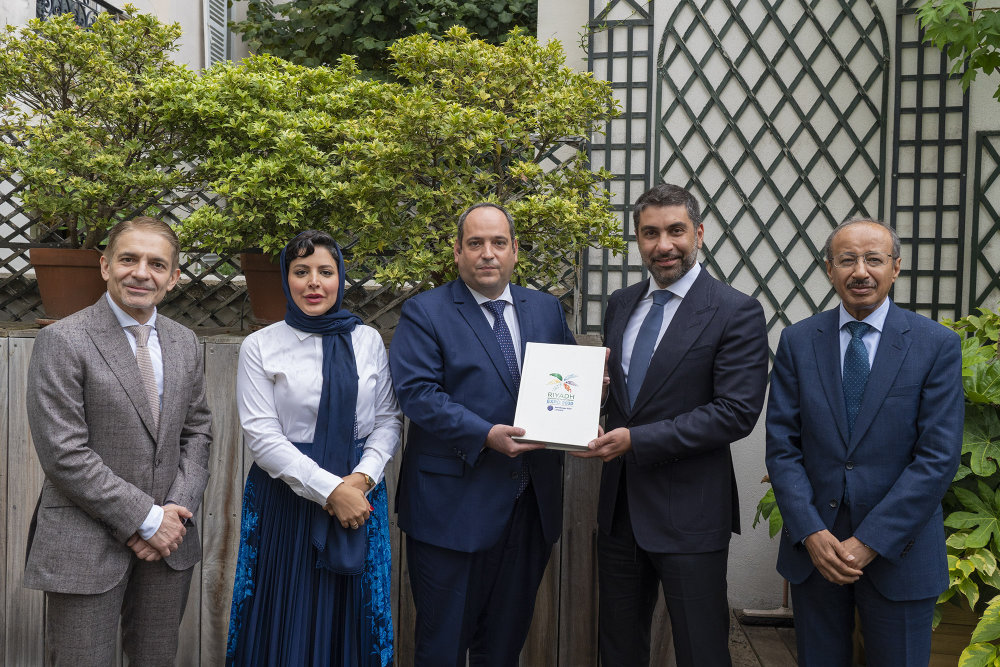
A copy of Saudi Arabia’s “candidature dossier” to organize World Expo 2030 in Riyadh was formally handed over by RCRC CEO Fahd Al-Rasheed to Dimitri Kerkentzes, BIE secretary general, on Sept. 7. (Supplied)
According to the Saudi Press Agency, the letter stated: “We live in an era of change and we face an unprecedented need for humanity’s collective action.”
The crown prince’s words were echoed in the theme of the Kingdom’s bid: “The Era of Change: Leading the Planet to a Foresighted Tomorrow.”
On Sept. 7, a copy of Saudi Arabia’s “candidature dossier” to organize World Expo 2030 in Riyadh was submitted to the Paris-headquartered BIE. The document was formally handed over by Al-Rasheed to Dimitri Kerkentzes, the secretary general of BIE.
Saudi Arabia’s desire to host World Expo 2030 goes hand in hand with Saudi Vision 2030, which was unveiled by the crown prince in 2016 and aims, among other things, to diversify the Saudi economy and develop the nation’s tourism and recreation sectors. Expo 2030 is scheduled to begin on Oct. 1, 2030, and continue until April 1 the following year.
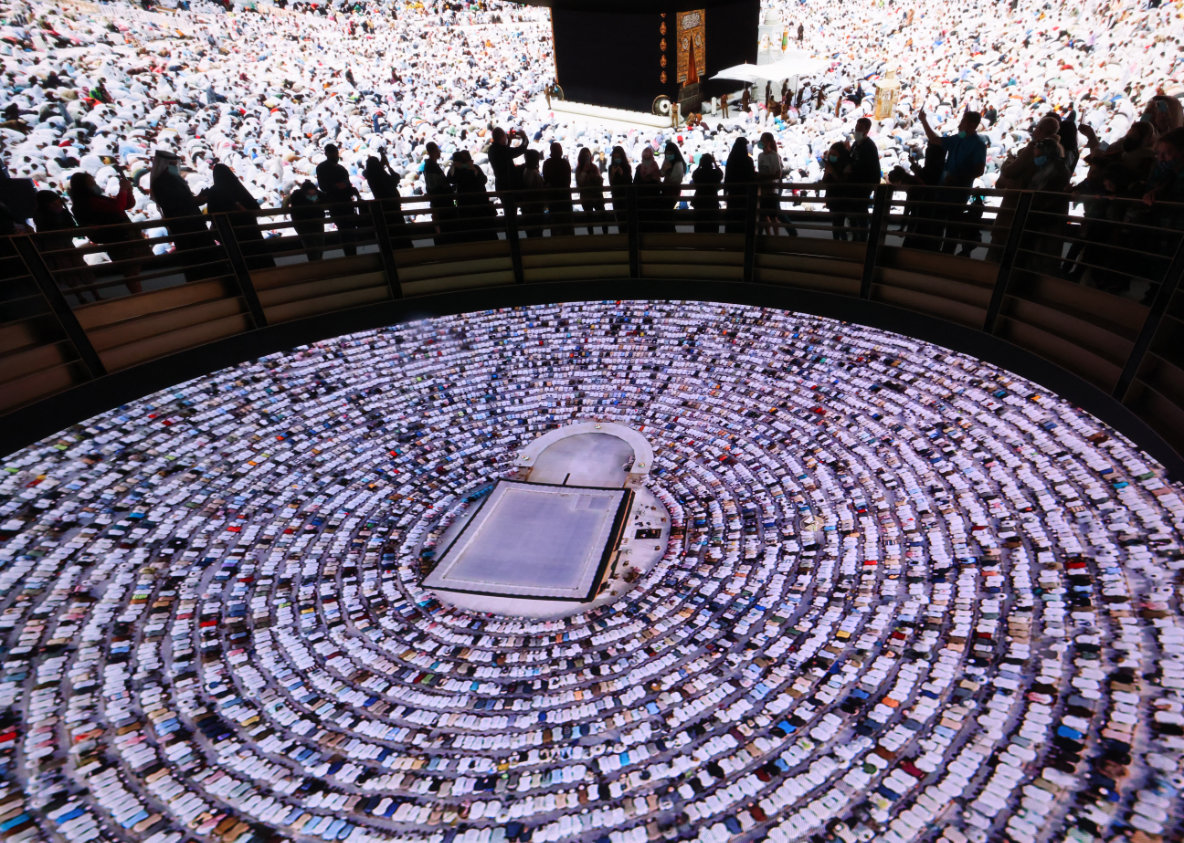
Saudi Arabia has had a long experience in hosting mega events, notably during the annual Hajj, with pilgrims numbering up to 3 million in the previous two decades. (Supplied)
As the crown prince noted in his letter to the BIE: “The 2030 World Expo in Riyadh will coincide with the culmination of the Kingdom’s Vision 2030.”
If Saudi Arabia is selected to host the event, authorities plan to turn Riyadh and the rest of the country into a world-class venue for global culture, connectivity and climate action.
The Kingdom is up against bids from Italy, South Korea and Ukraine. Russia was also a contender but voluntarily withdrew its bid in May. If Saudi Arabia is successful, it will become only the second country in the Middle East, Africa and South Asia region to host a World Expo in the event’s near-180-year history, and the second Arab nation.
Saudi Arabia has already earned significant support for its bid from more than 60 countries and organizations around the world, including China, France, Turkiye, Greece, Armenia, Cuba, dozens of African nations, and the Organization of Islamic Cooperation.
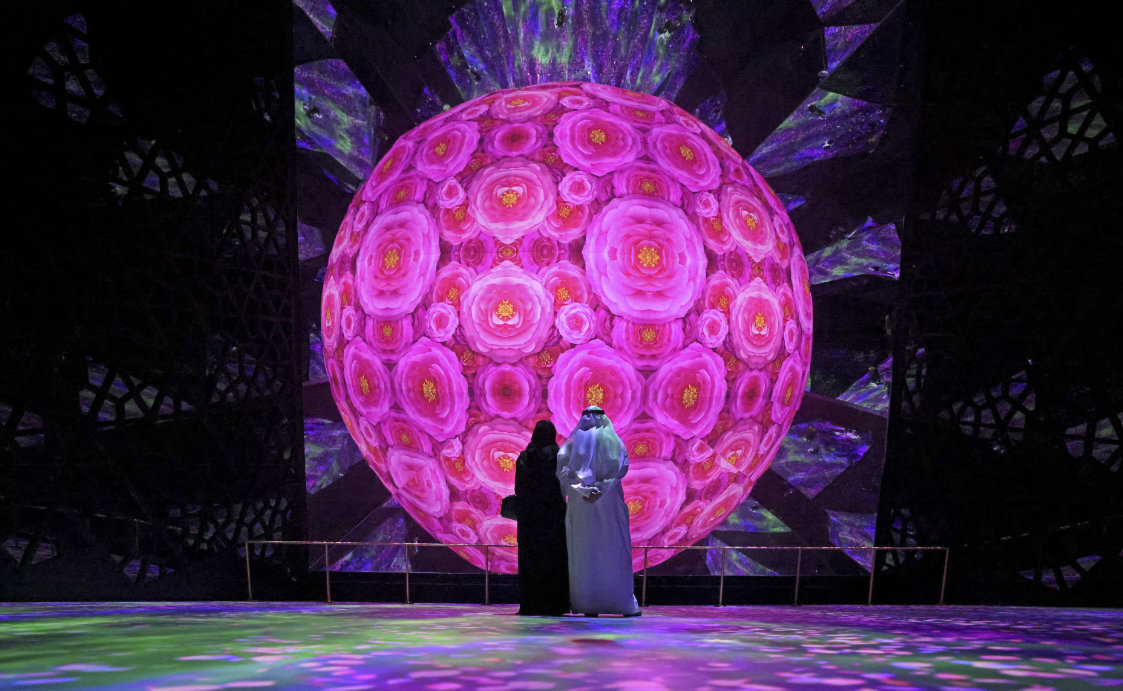
Saudi Arabia has already earned significant support from more than 60 countries and global organizations for its bid to host World Expo 2030. (Supplied)
During a meeting in July between French President Emmanuel Macron and the Saudi crown prince, the former “expressed the support of France for Riyadh’s candidacy to welcome Expo 2030.”
He also highlighted the long history of cooperation between the two countries in the fields of culture, research and tourism.
In June, the intergovernmental Caribbean Community, which represents 15 member states, announced its support for the Saudi Expo bid.
During a meeting in May in Riyadh with Adel Al-Jubeir, the Saudi minister of state for foreign affairs, Vladimir Gonzalez, the Cuban ambassador to Saudi Arabia, “officially communicated the support of the Republic of Cuba for the Saudi candidacy to host” Expo 2030.
INNUMBERS
Saudi pavilion at Expo 2020 Dubai:
13,000 square meters
23-meter-long interactive water curtain
1,240 square meter interactive digital screen
650 Saudi-manufactured solar panels
4.6 million visits
3 Guinness World Records
Another expression of support came on Aug. 3 from the Republic of Cape Verde, whose President Jose Maria Neves made the announcement during a meeting with Ahmed bin Abdulaziz Qattan, Saudi adviser at the royal court, in the capital, Praia.
With all eyes on Riyadh, the RCRC, the Saudi capital’s highest authority, is driving the city’s transformation in line with national aspirations. A successful Expo 2030 bid is likely to accelerate the pace of the Kingdom’s mega-tourism projects and provide an additional fillip to construction in the coming years.
Despite a two-year delay because of the coronavirus pandemic, Expo 2020 Dubai proved to be a huge success when it finally opened last year, attracting more than 24 million visitors over a six-month period.
It had three subthemes, reflected by the three districts on the expo site: Mobility, Sustainability and Opportunity. In keeping with the Kingdom’s increasing focus on progress and growth over the current decade, the Saudi pavilion was located in the Opportunity District. Designed by Boris Micka Associates, the Kingdom’s attraction consisted of an unfolding facade akin to an open window, symbolizing the Gulf nation’s forward-thinking vision and growing openness to the world.
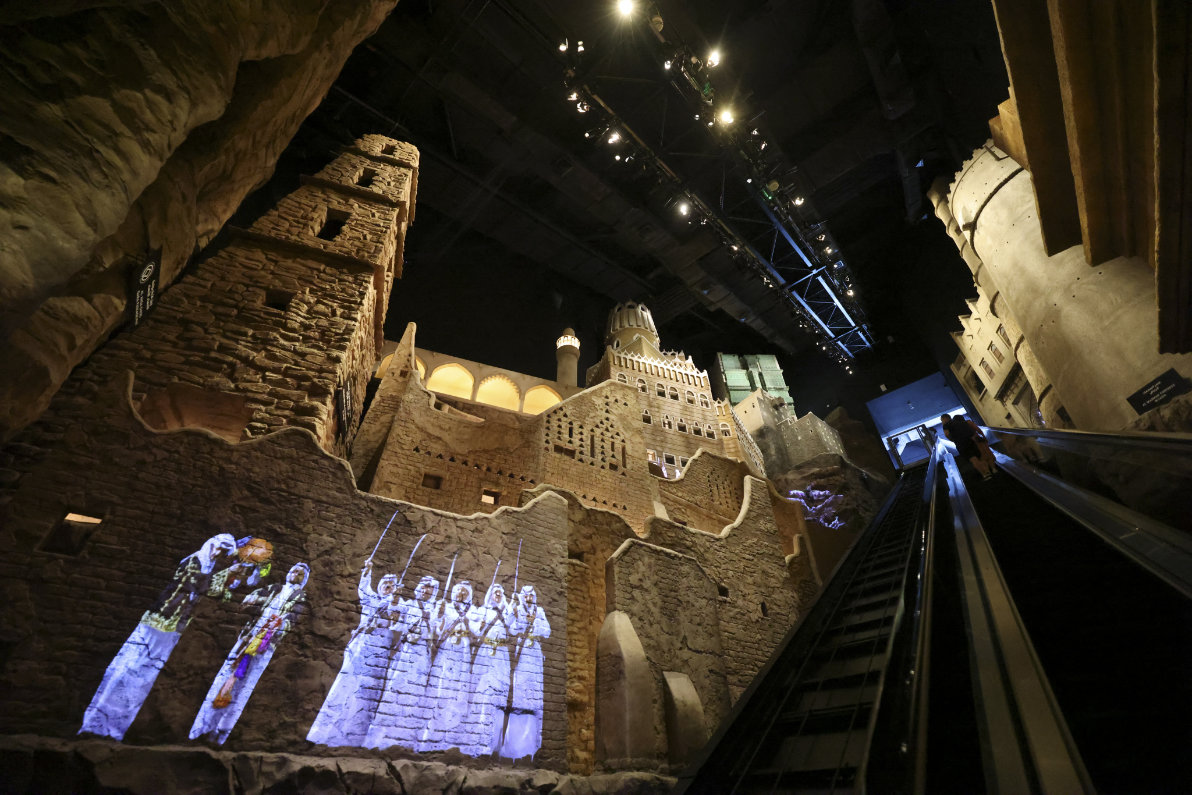
At Expo Dubai 2020, millions of people who visited the award-winning Saudi pavilion got a glimpse of the future that the Kingdom and its capital are building. (Supplied)
The pavilion earned numerous accolades for its design and architectural vision. Second in size only to the pavilion of the host nation, the UAE, the Kingdom’s attraction covered 13,000 square meters — equivalent to two soccer pitches — and included the longest interactive water curtain, measuring 23 meters. It also boasted the largest interactive light floor and the largest interactive digital screen, at 1,240 square meters, for which it was awarded three Guinness World Records.
Exhibitor Magazine gave the Saudi pavilion an award for the best pavilion in the category of large suites. It also received a Platinum Certificate in Leadership in Energy and Environmental Design from the US Green Building Council, honoring the structure as one of the most sustainable in the world. It had 650 solar panels, all of which were manufactured in Saudi Arabia.
One of Expo 2020 Dubai’s most praised pavilions, it had logged a record 4.6 million visits by the time the event ended.
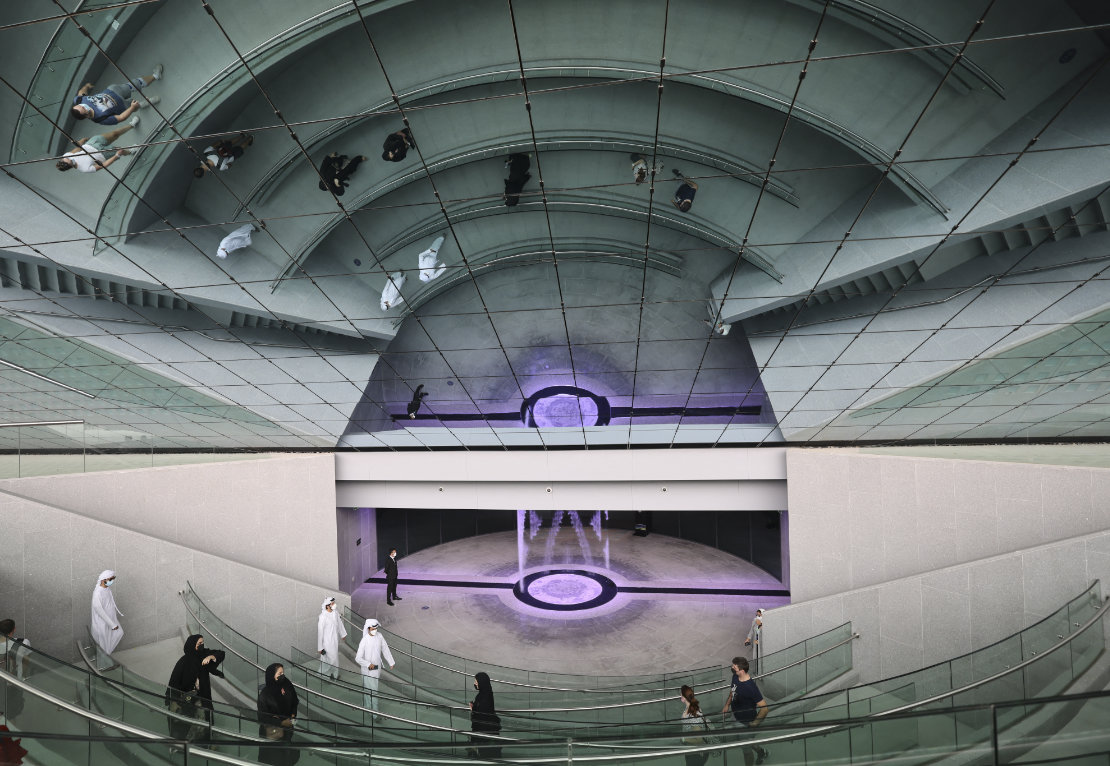
The Saudi pavilion earned numerous accolades for its design and architectural vision. (Supplied)
“The impressive footfall at the Saudi Pavilion demonstrates the world’s great interest in the Kingdom and the transformation it is undergoing under the leadership of King Salman bin Abdulaziz and HRH Crown Prince Mohammed bin Salman,” Al-Rasheed said in his speech at the closing ceremony.
Earlier, he had announced that, as part of the Expo 2030 bid, Riyadh will build “one of the world’s largest public-transport networks, one of the largest urban parks, a massive urban-greening project, and turn the entire city into an open art gallery without walls.”
He added: “As a first-time competitor, Saudi Arabia’s candidature represents an important and symbolic challenge for our nation and one that we will embrace with full commitment.”
